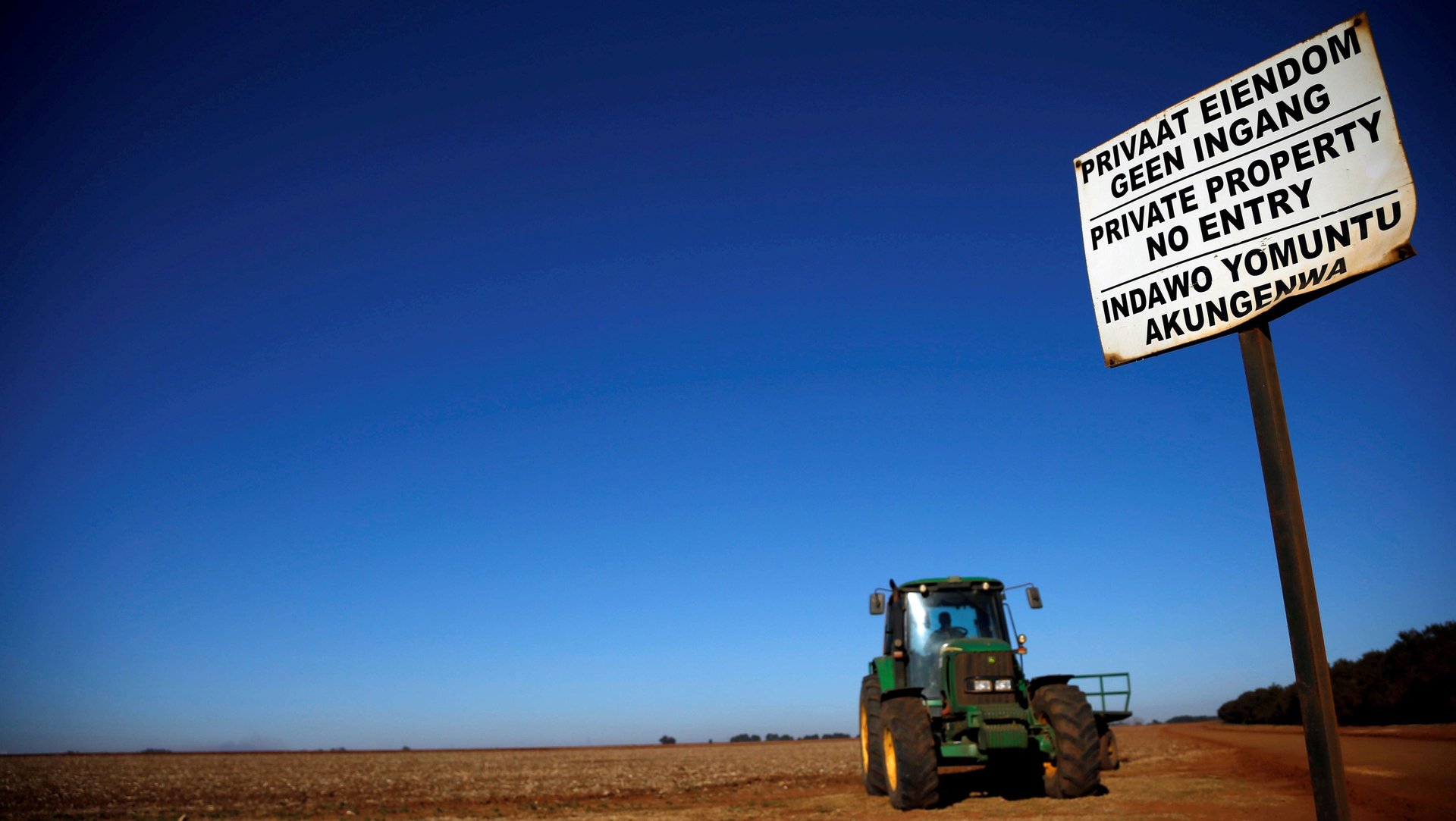Apartheid-era propaganda fueled Trump’s tweet on South African farms
This week, false information alleging “genocide” against South Africa’s white farmers spread from a fringe white-rights group in the African nation to the the Twitter feed of the US president. The propaganda was a spark that should have quickly sputtered out. But in the current incendiary environments of the US, Australia, and parts of Europe, there’s no stopping racist rumors from catching fire.


This week, false information alleging “genocide” against South Africa’s white farmers spread from a fringe white-rights group in the African nation to the the Twitter feed of the US president. The propaganda was a spark that should have quickly sputtered out. But in the current incendiary environments of the US, Australia, and parts of Europe, there’s no stopping racist rumors from catching fire.
Donald Trump tweeted on Wednesday (Aug. 22) that he was asking secretary of state Mike Pompeo to “closely study the South Africa land and farm seizures and expropriations and the large scale killing of farmers.” Except these things aren’t happening in South Africa. If Pompeo were to study the situation, he’d find a heated debate about land ownership in the country has been co-opted by groups seeking to fuel the narrative that white rights are under threat, while conveniently ignoring the data that show violence against white farmers is on the decline.
Trump’s tweet propagated the myth that South Africa’s whites are under attack. The reality is that the country is finally discussing how to deal with the fact that the majority of land remains in the hands of a minority, nearly 25 years after the end of white rule. It’s a debate about how to right the wrongs of structural racism in a country that still suffers deep wounds from it—a country where white South Africans continue to think it’s okay to utter deeply offensive racist slurs.
At first glance, the pathway for this fire starts with social media, spreads to fear-mongering websites like Breitbart, and ends with a president whose tweet about South Africa was inspired not by foreign policy, but by a segment on Fox News.
But to South Africans, it’s clear that social media isn’t what allowed this misinformation to spread. Rather, the path from a fringe group to the US president was fueled by racism, pure and simple: a deep-rooted fear of black people that has been fed to whites for centuries. South Africa’s apartheid government even had a name for this imaginary threat: the swart gevaar, or “black danger.” This ideology worked wonders in maintaining divisions during apartheid rule. How can you work with, love, or respect your countrymen when your government tells you to fear being wiped out by them?
The articulation of this fear has changed in the years since apartheid. But the fundamental distrust of black people remains, fed by those who misinterpret data and stoke others’ fears for their own political and ideological gain.